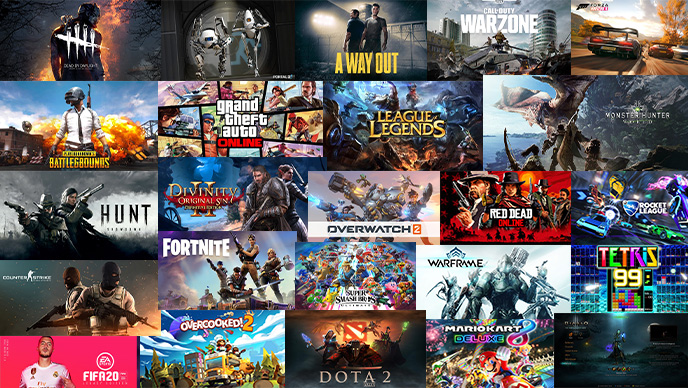
Game Time Continuum: The Endless Allure of Popular Online Games
In the ever-evolving landscape of entertainment, few phenomena have captured the collective attention of millions like online gaming. The world of video games has transcended its initial niche to become a global cultural force, with online multiplayer games standing out as the flagbearers of this revolution. From the early days of text-based MUDs (Multi-User Dungeons) to the immersive and visually stunning worlds of today https://imgur.com/a/JQpH8lt, online gaming has created a Game Time Continuum that keeps players engaged for hours on end.
The Evolution of Online Gaming:
The journey of online gaming has been marked by rapid technological advancements and the ever-expanding capabilities of gaming platforms. What began as simple pixelated graphics and basic multiplayer modes has blossomed into highly sophisticated virtual worlds that seamlessly blend reality and fantasy. Games like World of Warcraft, Fortnite, and Apex Legends have become more than just games; they are vast ecosystems where players can connect, compete, and collaborate with others on a global scale.
Social Connectivity:
One of the driving forces behind the enduring allure of online games is the social connectivity they provide. In an era where physical distances can be vast, online gaming has become a virtual space where friends and strangers can come together. Whether it’s forming alliances to conquer a shared enemy or engaging in friendly banter during a match, the social dimension of these games fosters a sense of camaraderie and community.
Economic Ecosystems:
Beyond social interactions, the economic ecosystems within popular online games have become fascinating microcosms. Virtual currencies, in-game marketplaces, and the concept of microtransactions have given rise to a digital economy where players can buy, sell, and trade virtual goods. The emergence of esports as a legitimate industry has further solidified the economic impact of online gaming, with professional players earning sponsorships, prizes, and global recognition.
The Endless Appeal of Competition:
Humans have an innate desire for competition, and online games tap into this primal instinct. The thrill of outsmarting opponents, achieving victory in intense battles, and climbing leaderboards keeps players coming back for more. Whether it’s the strategic depth of real-time strategy games or the adrenaline-pumping action of battle royales, the competitive aspect of online gaming provides a dynamic and ever-changing landscape.
Escapism and Immersion:
Online games offer more than just competitive experiences; they provide a form of escapism and immersion. Players can step into fantastical realms, assume different identities, and embark on epic quests—all from the comfort of their own homes. The level of detail in modern games, coupled with advanced graphics and storytelling, allows players to lose themselves in virtual worlds, providing a temporary escape from the stresses of everyday life.
Challenges and Criticisms:
Despite their widespread popularity, online games are not without their challenges and criticisms. Concerns about addiction, online toxicity, and the impact on mental health have sparked debates about responsible gaming. Developers and communities are continually working to address these issues, implementing features like time restrictions and fostering positive gaming environments.
Conclusion:
The Game Time Continuum created by popular online games is a testament to the evolving nature of entertainment and the human desire for connection, competition, and immersive experiences.